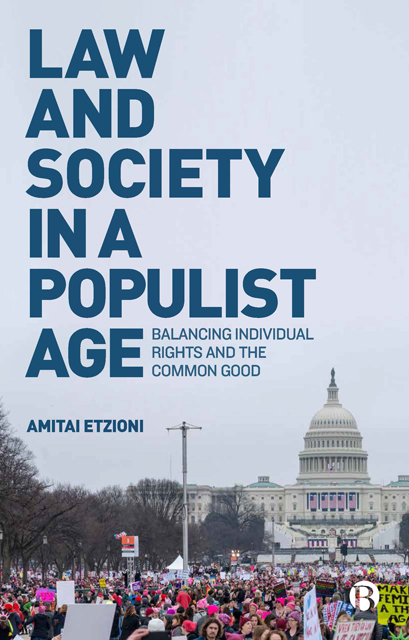six - Rights and responsibilities
Published online by Cambridge University Press: 21 April 2023
Summary
I started this book by suggesting that the language of human rights is morally incomplete, that it must be complemented by considerations of community and the common good. I noted from the outset that these two sets of moral claims cannot be made fully compatible, although the tension between them can be reduced. I turn next to ask how these contested claims are often dealt with and how they are best sorted out.
The advocacy model
Deliberations about lawmaking and public policy often follow the advocacy model characteristic of the American courts. According to this model, interested parties are divided into antagonistic ideological camps, with each side (and there are only two) presenting its respective interpretations of the facts in the way that will most strongly support its brief. Following the notion that one ought to “zealously” defend one’s client, each side feels free to make emotive points, provide stretched interpretations and selective facts, and advance particularistic normative arguments favorable to its case. The implicit assumption is that the proper judgment (if not “the truth”) will arise out of the clash of two extreme advocacy positions. The American judges act as neutral referees, and the jury is kept mum during the proceedings.
In public discourse, the advocacy model is reflected in the increasingly polarized debates between liberals and conservatives over numerous issues, including the role of government, gun control, abortion rights, and even climate change.Liberal communitarianism and other intermediary positions are often barely heard over the noise from the resulting clash.
The case of Chelsea Manning, previously known as Bradley, who was charged with leaking hundreds of thousands of secret military documents to WikiLeaks in 2010, illustrates this mode of deliberation.The defense presented the young soldier as “naïve but good-intentioned.”To Manning’s champions in the media and on the left, Manning is a heroic whistleblower and a victim of government overreach.By contrast, the government contended that Manning is a traitor, guilty of aiding the enemies of the United States.The prosecutor asserted that Manning “used his military training to gain the notoriety he craved.”
These positions reflect the state of the debate over government secrecy more broadly.
- Type
- Chapter
- Information
- Law and Society in a Populist AgeBalancing Individual Rights and the Common Good, pp. 103 - 108Publisher: Bristol University PressPrint publication year: 2018



